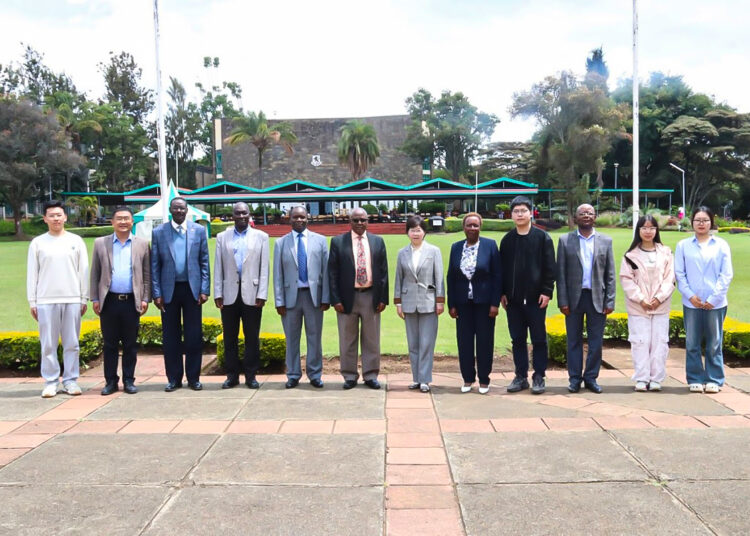Egerton University’s relationship with Nanjing Agricultural University (NAU) has evolved significantly over the years, marked by productive collaborations that aim to address both agricultural and academic challenges in Kenya. Recently, a high-level delegation from NAU visited Egerton University, deepening the bond between the two institutions and reinforcing their commitment to driving innovation in agricultural practices and fostering academic exchanges.
One of the most significant collaborations between the two institutions is the grafted tomato project. This initiative, which emerged from their shared commitment to tackling agricultural challenges in Kenya, has proven to be highly successful. According to Prof. Liu Yutao, the Chinese Director of the Confucius Institute at Egerton, the grafted tomato technology has revolutionized tomato farming by addressing the persistent issue of bacterial wilt, a major threat to tomato yields. Prof. Liu emphasized, “The technology empowers youth, enabling them to earn a living by grafting tomatoes and other crops for local farmers and by innovatively making grafting pegs required for the process.”
Since its inception, the grafted tomato initiative has made a significant impact, particularly in regions such as Molo, Njoro, Subukia, Bahati, Gilgil, Kuresoi South, and Naivasha. Over 4,000 farmers have benefited from this technology, with many reporting increased yields and incomes. One farmer shared that, in the early stages, their harvests were bringing in about $15.50 weekly, with subsequent yields reaching as much as $54.26 per week. These tomatoes, which are significantly larger than traditional varieties, offer a clear example of how innovative agricultural practices can improve livelihoods.
In addition to agricultural developments, the visit also focused on further enhancing academic and cultural exchanges between the two universities. During the visit, Egerton’s leadership emphasized the importance of strengthening these academic ties. Prof. Richard Mulwa, Deputy Vice-Chancellor for Administration, Finance, and Planning, noted that the China Belt and Road Initiative has played a pivotal role in developing crucial infrastructure at Egerton, such as the Molecular Lab. “The Belt and Road Initiative has allowed us to create state-of-the-art laboratories that are essential for cutting-edge research in agriculture,” he stated.
Furthermore, the partnership is not limited to agriculture alone. The visiting NAU delegation explored opportunities for collaboration in other sectors, particularly in language and cultural studies. The Confucius Institute at Egerton has played a central role in fostering Chinese language education and cross-cultural understanding, contributing to the growing academic exchange between the two universities. In line with this, Prof. Nzula Kitaka, Director of Marketing and Resource Mobilization at Egerton, highlighted the upcoming Egerton University Career Week, which will provide Chinese companies with an opportunity to present their products and recruit students for internships. “This event will offer valuable opportunities for our students to connect with leading Chinese firms,” she said.
The grafted tomato project is just one example of how the Egerton-NAU partnership is helping address real-world challenges. Looking to the future, the universities are keen to expand their collaboration, with plans to scale up agricultural projects and introduce more research opportunities. Prof. Kibwage, the Vice-Chancellor of Egerton University, reassured the visiting delegation of Egerton’s full commitment to supporting these initiatives, affirming, “My office will fully support these projects and help ensure their growth.”
Additionally, there are plans for further cooperation in water studies, with Dr. Kitaka, an expert in biological sciences, suggesting that Chinese institutions could partner with Egerton in this field, noting China’s leadership in the blue economy. Such endeavors reflect the depth of the collaboration and its potential to drive sustainable growth and innovation across various sectors.
Source: Egerton University News








